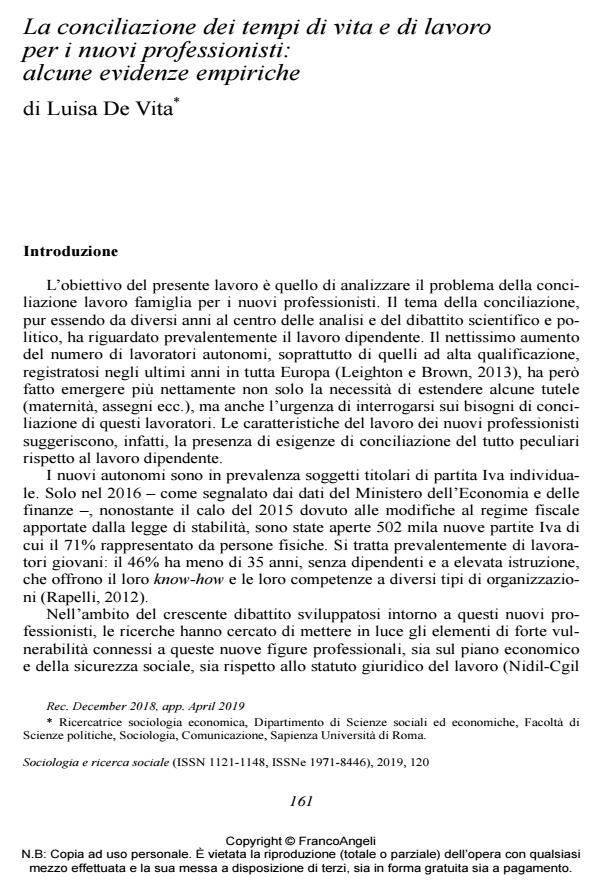Self-employment and work-life balance: empirical evidences from Italy
Journal title SOCIOLOGIA E RICERCA SOCIALE
Author/s Luisa De Vita
Publishing Year 2020 Issue 2019/120
Language Italian Pages 21 P. 161-181 File size 211 KB
DOI 10.3280/SR2019-120007
DOI is like a bar code for intellectual property: to have more infomation
click here
Below, you can see the article first page
If you want to buy this article in PDF format, you can do it, following the instructions to buy download credits

FrancoAngeli is member of Publishers International Linking Association, Inc (PILA), a not-for-profit association which run the CrossRef service enabling links to and from online scholarly content.
Work-life balance has been at the center of debate for several years, although it has mainly involved dependent workers. This contribution is instead intended to explore this issue with specific reference to self-employment. The contribution presents the results of a research conducted by interviewing 135 professionals. The characteristics of this type of profession and the increase in recent years of the number of self-employed workers, suggests not only the need to understand how these workers respond to care needs but also to explore the processes of building their own work and family paths, their expectations and their wishes. In addition, the essay will explore and evaluate whether the different living and working conditions stimulate a greater gender symmetry in the division of domestic and care work.
Luisa De Vita, La conciliazione dei tempi di vita e di lavoro per i nuovi professionisti: alcune evidenze empiriche in "SOCIOLOGIA E RICERCA SOCIALE " 120/2019, pp 161-181, DOI: 10.3280/SR2019-120007